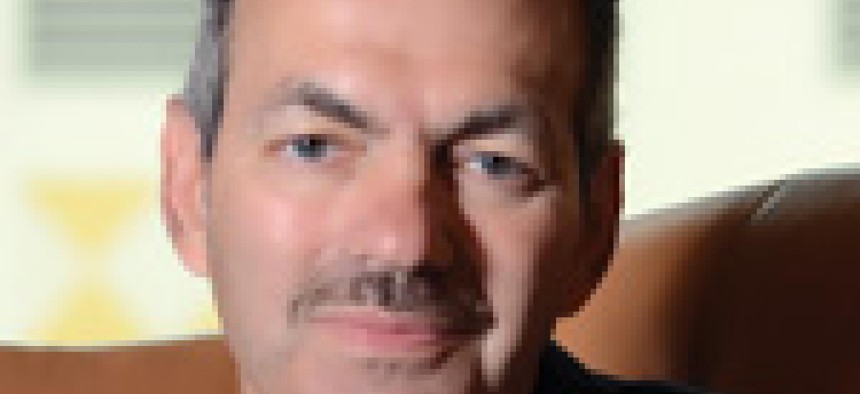Mark Forman: E-gov's staunch champion

Mark Forman led President George W. Bush's e-government and e-business initiatives to create a more productive, citizen-centric government.
For Federal Computer Week's 25th anniversary issue, we highlight some of the people, policies and technologies that have influenced federal IT. Although it is not possible to include all the dynamic and dedicated people who have been or still are a part of this marketplace, we start with some who have left their mark.
When Mark Forman took on the role of associate director of IT and e-government at the Office of Management and Budget in 2001, the position essentially functioned as the first federal CIO. At the time, the debate over that new function focused on whether the person should be a technology geek or a business transformation guru. Forman accepted the challenge on the condition that he would be a transformer rather than a technologist.
The size of that challenge became clear in his first week on the job when he received a report related to the implementation of the Government Information Security Reform Act. It marked the first time anyone knew how many information systems the government had, how secure they were, and how much agencies were spending on IT and cybersecurity. The report also uncovered large sums of money that had previously been unaccounted for.
“We had a billion dollars of IT at the National Nuclear Security Administration that we never knew about until the GISRA report,” said Forman, who is co-founder of Government Transaction Services. “Not only was the report useful for cybersecurity, but it was also useful for getting that inventory of government IT.”
In addition to managing more than $58 billion in IT investments, Forman led President George W. Bush's e-government and e-business initiatives to create a more productive, citizen-centric government. Forman’s efforts included simplifying the FirstGov portal using a "three clicks to service" model, creating the first IRS free filing website under a public/private partnership and establishing a rigorous cybersecurity improvement process. His role at OMB was later codified as administrator of the Office of E-Government and IT as required under the E-Government Act.
“Mark played a key role…setting up the framework for that office and moving the agencies quickly into e-government,” said Olga Grkavac, executive vice president for the public sector at TechAmerica. “He helped make e-government [into] government, and now, no one really uses the term ‘e-government’ anymore. It’s just government.”
Forman said change needs to come from the top. “Unfortunately, one of the biggest ways you get change is when you have a crisis,” he said. “Our crisis was 9/11, and it became very clear to everybody that we had to work together.”
Paul Brubaker, president of Silver Lining and former deputy CIO at the Defense Department, said Forman was successful because of his vision and ability to make change happen. He had “one of the best and most effective approaches to transforming government that I've ever witnessed,” Brubaker said.
NEXT: Meet the IT market master.





